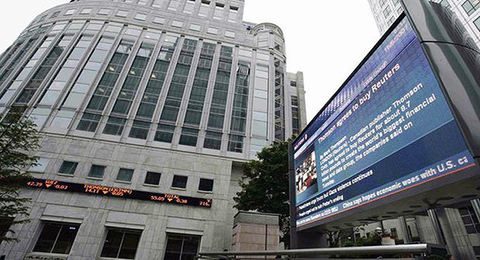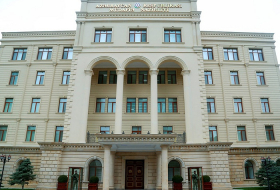Inevitable in the age of globalization, in some cases this trend nevertheless leads to inconsistence with fundamental democratic principles. Doubts are raised about the commitment of certain media outlets to the idea of free media, to the principles of justice and to dissemination of impartial and correct information. The same assessment can be made with regards to politicized reports of the NGOs.
Information plays important or rather crucial role in the system of international relations of the modern times. Dissemination of information serves as an instrument of prompt impact upon the events and the broader audience, and of political and economic leverage. Impartiality of global media outlets may seriously influence the course of political processes given the world`s dependence on information supply. Dire consequences of any disinformation are detrimental to the notion of justice.
Today the information rests within the monopoly of global media outlets. Observations reveal that broader audience access of information that counters their interests is practically impossible. Another reality is that most of the global media outlets belong to the Western world. The likes of “Reuters” (London), “Associated Press” (New York), “CNN” (Atlanta), “New York Times” (New York) and “Agence France Presse” (Paris) are engaged with circulation of information. They have instituted a vast global network supplying the international community with a precious product.
Alternatively, none of the media outlets associated with China, Russia, or in fact any other country in the world, possess a network with global outreach. “Al-Jazeera” is the only channel that could be distinguished. However, the part this particular channel has played during the “Arab Spring” implies that it is the link in the chain of global media networks. One-sided information only contributes to the monopolization and biasness of the information domain. The global audience is receiving only the information that is deemed suitable by those agencies as oppose to reality.
According to observations, most media outlets are not merely conveying the information but are rather engaged with adjusting it to best suit the political needs. Certain news channels replay the news repeatedly twice or thrice a day. Report on a given development sores the eye for weeks. On the other hand, anything that runs counter to the policies of the channel are turned the blind eye on. For instance, while Syrian events are widely reported, atrocities committed against Muslim Arakanese in Myanmar receive little or no attention. What do these double standards stand for? Thus, one may presume that politicized media is not merely providing information but using it as a leverage.
Another observation is that states pursuing independent foreign policy course are also becoming the targets of those media agencies. This only attests to the sponsored nature of the articles and the reports, used as the leverage against a given country. In this regard, we wish to highlight the ongoing campaign of “Reuters” against Azerbaijan. We have repeatedly encountered distinctively biased position of this agency towards Azerbaijan. “Reuters” article on alleged cooperation of Azerbaijan and Israel against Iran was plain political sponsorship and hypocrisy. Without citing any sources and guided by rumors only, “Reuters” claims of Azerbaijan-Israel cooperation in light of the possible strike against Iran was nothing but a product of imagination.
What about professionalism and impartiality of a global media outlet. “Reuters” has gone out of its way by publishing a politically sponsored story that lacks sources and positions of the parties concerned. It is no secret that geopolitical situation in the region of Azerbaijan’s location is rather intense. Relations between Iran and the West have sharply deteriorated, sanctions have been imposed against this country and anti-Iranian coalition has been established.
Now they are trying to implicate the countries of the region. Azerbaijan’s position in this regard has always been unequivocal. The country’s leadership has repeatedly declared the inadmissibility of deployment of any foreign military contingency on Azerbaijani soil. It is by no means that Azerbaijan will provide its territory for any military action against Iran. Iran and Azerbaijan are friendly countries that share deeply embedded historical roots. Perhaps, certain forces are displeased to see such a position and thus, exploit “Reuters” for their political purposes. Moreover, “Reuters” did not just stop there: they had it republished in the Israeli “Jerusalem Post” paper. Then “Reuters” made attempts to republish the article in various parts of the world, Pakistan and other Muslim countries were emphatically pressured. Another aspect is that “Jerusalem Post” has failed to prove anything but being a mere instrument in this campaign. Whereas, impartial media outlet must have investigated the topic; addressed the issue to the expert community and sought government positions of both Azerbaijan and Israel.
Meanwhile “Reuters” campaign against Azerbaijan is in full swing. Citing U.S. State Department the agency has recently included Azerbaijan into the list of most dangerous countries. Azerbaijan was deemed equally dangerous to the likes of Afghanistan, Sudan, Libya, Somalia and Yemen. Is there logic behind placing Azerbaijan into the group of countries that are practically ravaged by war? This is sufficed to prove biased and sponsorship based tactics of “Reuters”. Any journalist, diplomat or ordinary citizen that has once visited Azerbaijan would confirm that this is nothing but bias and fiction.
The motive is clear. Dynamically developing Azerbaijan is conducting an independent foreign policy. The country is implementing massive projects and hosting grand events. The objective of those spreading false knowledge about Azerbaijan is to obstruct the influx of tourists, prevent the foreign investment into the country and to frighten high-profile guests attending international events in Azerbaijan.
However, this political gamesmanship is doomed, in light of the achievements of Azerbaijan. Today Azerbaijan enjoys total political stability. Visiting foreigners and diplomats alike are able to safely visit even the most distant corners of Azerbaijan. In 2013, Azerbaijan will host Davos Economic Forum, World Forum on Intercultural Dialogue and other events of global prominence. Our country will soon host the inaugural European Games. Azerbaijan is able to attract foreign investments into various fields of economy thanks to favorable investment climate. Azerbaijan’s economic rating is consistently growing. This is the most comprehensive response to media outlets akin of “Reuters” that have turned into political instruments.
More about:
















































